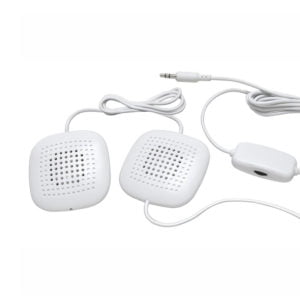When you first begin experiencing tinnitus, it might not be something you worry about too much. The hissing, buzzing, or ringing in your ears can be slightly annoying, but probably still easily ignorable. It is when you notice the sound is not going away, however, that it really begins affecting you: falling and staying asleep can become harder, as well as concentrating. This, in turn, can take a toll on many areas of your daily life, including work.
Managing the condition at the workplace can be challenging, but this doesn’t mean there is nothing that can be done. In fact, there are various practical steps you can take to alleviate the symptoms and improve your wellbeing.
Re-directing Your Focus
One of the most important skills you can learn to help manage your tinnitus symptoms is the skill of mindfully re-directing your attention away from them. Since everyone’s experience of tinnitus is subjective, it can be affected by an array of factors, including what your mind is focusing on.
The more you focus on your symptoms, the more amplified they will seem. Although it may feel counter-intuitive, the most successful strategy would be to direct your attention to your current work task. This will both take your mind off the tinnitus and will benefit your performance.
Paying Attention to Your Environment

Environments with light background noise can help lessen your focus on the tinnitus symptoms by drowning them out. A busy office, for example, can actually be beneficial for that. A quiet meeting room, however, can have the opposite effect. Taking a few minutes to relax and adjust to the environment before the meeting has begun can help you manage your symptoms and stay calm and relaxed.
It should be noted, however, that if the sounds within an environment are very loud, they can make the tinnitus even more bothersome. So, if you work in construction, for example, it might be a good idea to invest in a pair of high-quality noise-cancelling earplugs.
Minimising Stress and Anxiety
According to research, stress can be a major trigger for tinnitus and it can also make it worse. In turn, tinnitus itself can be a huge contributor when it comes to stress levels. This can make you feel like you are trapped in a vicious cycle: stress intensifies your tinnitus, and then the tinnitus itself makes you feel more stressed and anxious.

This is why effectively managing stress and anxiety levels at work is an essential part of keeping your tinnitus under control. You can do this by ensuring you leave home early enough so that you have enough time to reach work in order to avoid anxiety from traffic or public transport. Going to bed on time and getting a good night’s sleep is another strategy that helps. Communicating your boundaries and not agreeing to unrealistic tasks, deadlines and expectations is just as important.
Using Targeted Equipment

The best way to manage tinnitus and minimise your symptoms is to adopt a holistic approach and combine multiple strategies. A good way to achieve that is to use targeted equipment designed to alleviate tinnitus symptoms along with mindfulness/relaxation techniques, etc.
We at Hearing Aid Accessories offer a wide range of tinnitus products to help you stay in control and reduce the impact of the condition’s symptoms. These include white noise machines, sound therapy systems, and many more. Fancy having a look? You can browse our shop by clicking the button below!




